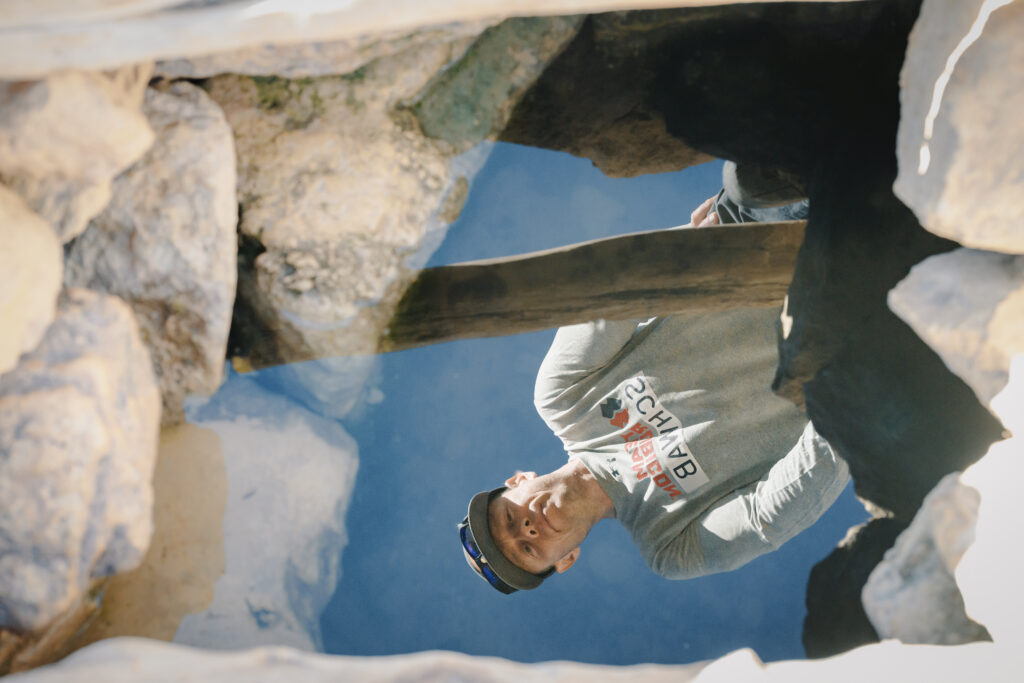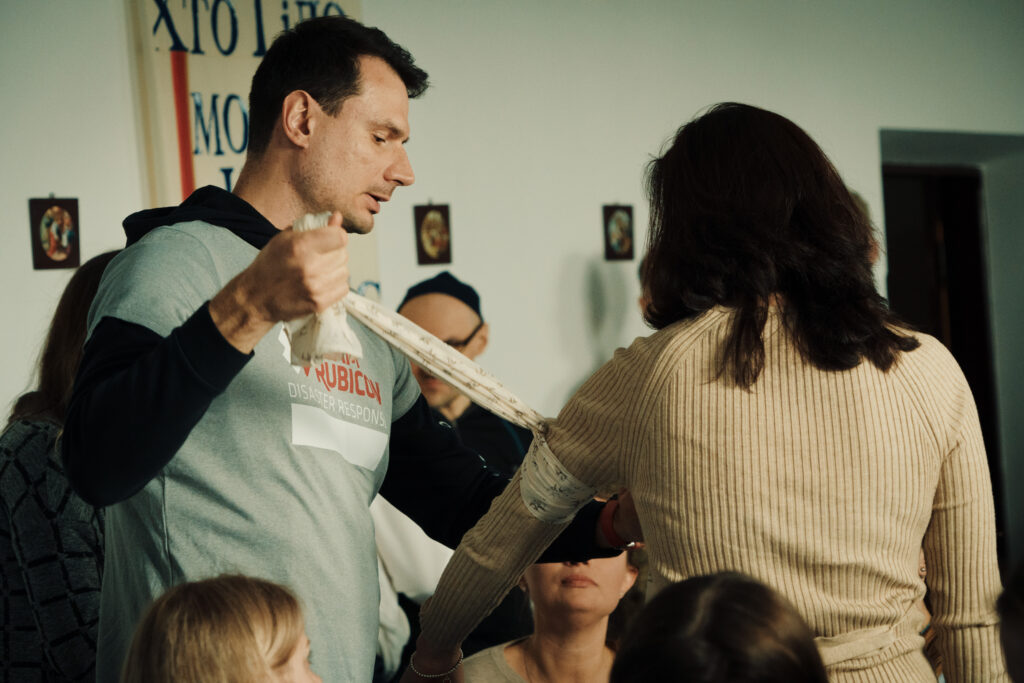Team Rubicon has responded to disasters all over the world, bringing medical care and water, sanitation, and hygiene support to communities in over 30 countries. In the 14 years since Jake Wood joined an ad hoc team of veterans and formed Team Rubicon to respond to the 2010 Haiti earthquake, volunteers have grown past reacting to disasters and now lean into providing disaster risk reduction and capacity building to vulnerable communities in preparation for future crises. On World Health Day, we are recalling Team Rubicon’s evolution in health and medical services and celebrating the global progress in bringing good health to communities worldwide.
The first team was self-organized, with no institutional support. Watching the earthquake’s aftermath on the news, they garnered funds and medical supplies donated by friends and family to get to Haiti and help. With rented vehicles and donated gear, the team treated thousands of people, traveling to dangerous areas that were considered too risky by others. Their plan in Haiti became the blueprint for Team Rubicon: focus on those with the most need and operate in overlooked communities.
Team Rubicon international volunteers continued to provide medical care and support worldwide. An earthquake and subsequent tsunami striking Chile, a Caribbean tropical storm hitting Dominica, a Pacific cyclone taking out a hospital in Kiribati; Team Rubicon delivered crucial medical supplies and emergency medical assistance to underserved populations, helped rebuild vital medical facilities, and participated in disaster risk reduction exercises to bolster resilience and capacity. From earthquakes to cyclones, from the Himalayas to the tropics, volunteers crossed the planet providing care after disaster, however they could.
Our efforts were rewarded and reinforced in 2018 when the World Health Organization verified Team Rubicon as an Emergency Medical Team (EMT) Type-1 Mobile, the first NGO in North America to receive the designation. The verification permitted us to coordinate rapid responses to several disasters the following year and participate in capacity building exercises overseas. Under the new auspices of WHO verification, we provided health services to disadvantaged populations in Guatemala, joined disaster risk reduction exercises in Guyana, supported the medical system in the Marshall Islands during a Dengue Fever outbreak, and sent an EMT Type-1 Mobile to Mozambique after the deadly Cyclone Idai.
The ability of Team Rubicon’s medical capabilities and volunteers to adapt to challenges was tested when COVID-19 sprang upon the world in 2020. While we provided medical surge support overseas in Mexico, Brazil, and Mongolia, the first medical mission in the continental U.S. launched, supporting healthcare facilities across America. Team Rubicon then developed a novel coronavirus testing service, and volunteers around the country opted to leave their homes to help manage COVID testing programs nationwide. Once the vaccine became available, Greyshirt volunteers helped administer it within their communities. The pandemic led to new processes, such as adopting virtual mobilization and logistical practices to limit disease transmission while allowing the maximum amount of service and a renewed understanding of what it means to take care of volunteers’ health.

The same year, Team Rubicon tested a pilot program for water, sanitation, and hygiene (WASH) services internationally. Trained volunteers work to decrease WASH-related diseases in underserved populations before, during, and after disasters. In cooperation with local partners, our WASH experts design and deliver targeted interventions and capacity-strengthening activities that prepare communities for future disasters and allow them to lead healthier lives. We also conduct emergency WASH interventions designed to reduce the risk of disease transmission in a variety of disaster settings by listening to community members and the needs of the affected population. Team Rubicon has since deployed WASH teams in places like Honduras and Malawi. The most recent WASH operation, in response to a massive earthquake in Morocco, served over 12,000 individuals with hygiene and sanitation training and water-filter equipment that can provide safe water for five people a day for up to ten years—leaving positive impacts for years to come.
Russia’s invasion of and ensuing war against Ukraine produced vast levels of human suffering, and Team Rubicon responded with unprecedented support operations for the people of Ukraine. Volunteers visited the country three times in 2022, each deployment offering new challenges and creating new service opportunities. The month after the invasion, medical care volunteers provided pediatric health, maternal and reproductive health, mental health, and emergency care to internally displaced persons in western Ukraine. Volunteers returned in the fall to help expand conflict and emergency medical capacity within the Ukrainian healthcare system and trained Ukrainian healthcare professionals and civilians in whole-blood transfusions, point-of-care ultrasounds, and other technology and techniques. During the two-month operation, volunteers trained more than 1,500 Ukrainians in life-saving techniques and technology. The winter welcomed another team of Team Rubicon doctors, nurses, and paramedics who went to eastern Ukraine for a month to treat war-weary populations for everything from trauma care to pediatric issues.
The world’s health needs continue to change, and the international medical experts at Team Rubicon work tirelessly to co-create practical programs that will have a long-term impact on the communities we serve. From medical care to WASH to capacity building, Team Rubicon’s medical volunteers have served and cared for tens of thousands of individuals over the years, and continue innovating ways to confront the challenges of world health.




